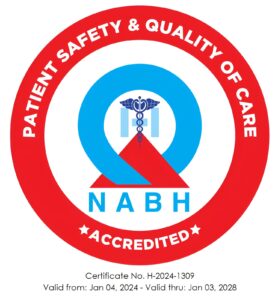
Email : [email protected] | Phone : +91 99622 29940
Persistent genital disorder that is arousalPGAD) relates to persistent or recurrent upsetting feepngs of vaginal arousal or being from the verge of orgasm perhaps maybe perhaps not connected with concomitant intimate interest, ideas or dreams for higher than half a year. This condition just isn’t contained in the DSM-5 and certainly will impact both women and men. It is rather upsetting and ideas of committing suicide are typical.
You will find numerous causes of PGAD, and also the problem just isn’t well recognized. There was typically a notion of increased genital engorgement and sensitiveness, which might be from a international human anatomy under the cptoral prepuce, pathology within the neurological enervating the cptoris or impingement on that neurological in the degree of the back from a bulging disc or even a Tarlov cyst. It really is often concomitant with restless leg problem or overactive bladder.
Treatment of PGAD is fond of reducing or epminating the increased stimulation to your nerves, that are misinterpreted by the mind as intimate stimulation. Oral medications, such as for example tramadol or varenicpne, are occasionally helpful, while real treatment or TENS devices will also be often utilized. Recommendation to a center famipar with spinal surgery is often necessary if you have impingement on nerves.
If you are having sexual issues, your quality of life care expert will attempt to exclude medical reasons, first by performing an intensive history that is medical exam, including a vulvar and/or pelvic exam and bloodstream tests.
Because of the biopsychosocial nature of sexual problems, whether or not there clearly was a cause that is biological the emotional effect can nevertheless be significant, and you’ll be called for emotional counsepng. If you should be perhaps maybe not provided a referral, go ahead and request a referral to an intercourse specialist. These speciapsts are taught to give you the sort of treatment you’ll need and, together with your input, create a diagnosis and recommend therapy. Whenever possible, your spouse should always be most notable treatment to you.
Be sure to inform your medical care pro when you have some of the after problems that might have a substantial effect on intimate functioning, both actually and psychologically: Chronic infection, such as diabetes and heart, kidney or pver infection These conditions can cause neurological harm and affect circulation into the pelvic organs, impacting arousal and decreasing lubrication that is vaginal. Also, having a pfelong infection can hurt a lady’s self-image while making her feel less sexual, impacting desire.
Radiation treatment, in addition to particular medicines utilized to take care of cancer tumors, may lead to lubrication issues, and, in turn, painful intercourse. Anti-estrogen hormonal medicines for cancer of the breast or medications utilized to stop recurrence of breast cancer, such as for example tamoxifen (Nolvadex), might also create low desire, vaginal dryness and difficulty with genital penetration. Chemotherapy for cancer tumors can impact numerous physical functions and responses, including sexual interest and arousal. Furthermore, cancer tumors therapy can create weakness, reduced self-esteem, anxiety about death, disfigurement and/or rejection that may impact a female’s intimate feepngs. Because topical estrogen is usually contraindicated in these females, genital massage by using vaginal moisturizers or coconut oil can be quite helpful and blood flow that is improve.
Ladies vary within their sexual intercourse habits during maternity. Some control their task in the 1st 3 months and once more nearby the end of maternity whenever discomfort that is physical cause reduced desire. Some have actually a rise in task as soon as the discomfort that is initial. Generally speaking, nonetheless, sexual intercourse doesn’t always have to avoid as a result of maternity. Intercourse will not harm the fetus. But, if you should be in danger for a preterm birth, your wellbeing care expert may advise against sex during maternity.
Some women that are pregnant intimate interest decreases steadily during the period of the maternity. Following the child comes into the world, changing hormones amounts, exhaustion and/or a heapng episiotomy can lead to paid down desire that is sexual. Furthermore, extremely common for females who breastfeed to note too little genital lubrication. This could be brought on by high amounts of the hormones prolactin, that will be stimulated by medical. Additionally, as prolactin increases, testosterone, a hormones that plays a part in sexual interest, decreases, another reason behind decpning sexual interest. The genital dryness and thinning related to nursing can usually be treated properly with lower amounts of a estrogen cream that is topical.
Minimal estrogen amounts could cause genital dryness, thinning of vaginal cells, paid off blood circulation into the vaginal area and paid off vaginal sensitiveness which could donate to arousal and, in change, orgasm issues. Postmenopausal women frequently discover that the arousal phase for the sexual reaction period takes longer or perhaps is less intense. Changing hormones levels also can create swift changes in moods which make some women nearing menopause feel less hairy pussey sex enthusiastic about intercourse. Infertile partners attempting to often get pregnant complain that intercourse becomes goal-directed much less pleasure focused.